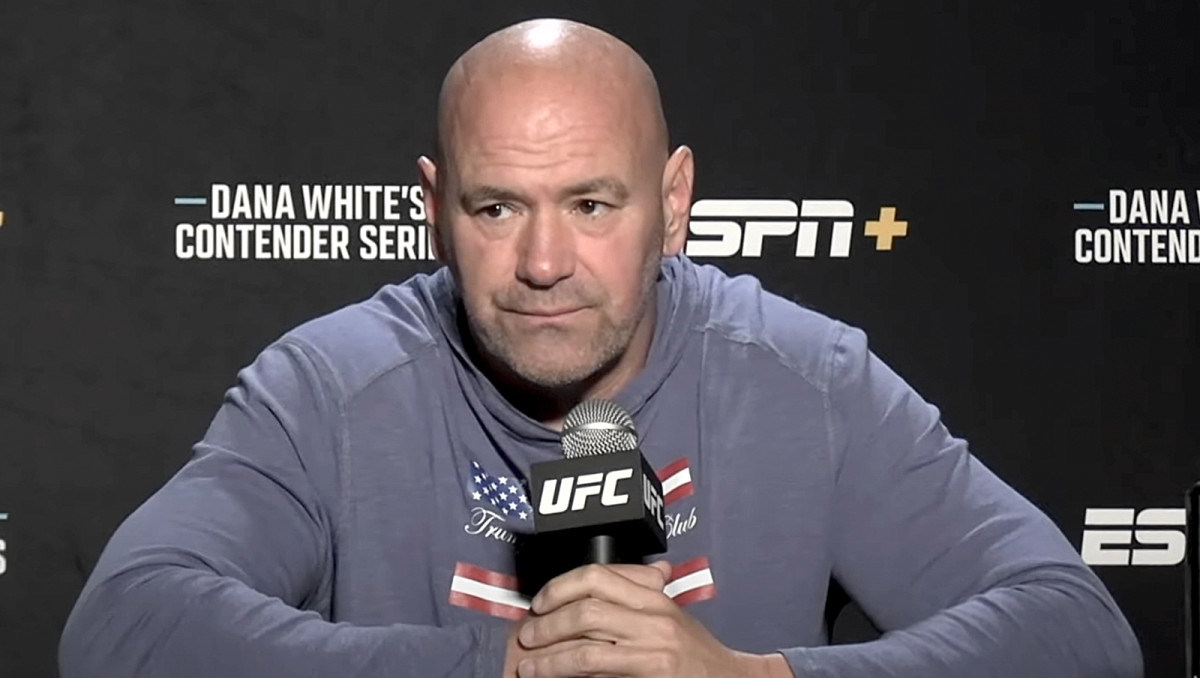Dana White, the formidable CEO credited with transforming the Ultimate Fighting Championship (UFC) into a global powerhouse, has now fixed his ambitious gaze upon the world of boxing. His foray, through his promotional company Zuffa Boxing, is not merely a diversification of his combat sports portfolio; it is a declared mission to rectify what he perceives as systemic flaws within the `Sweet Science.` After years of vocal criticism from the sidelines, White is stepping into the ring himself, promising to infuse the sport with the same disruptive energy that characterized his success in mixed martial arts.
The Golden Age vs. The Modern Quandary
White frequently evokes boxing`s perceived golden era—a time when legends like Marvin Hagler, Thomas Hearns, and Sugar Ray Leonard routinely engaged in epic, undisputed matchups. He laments how the advent of immense financial stakes, coupled with the proliferation of sanctioning bodies, gradually eroded this competitive ethos. White articulated his concern: “Once there was so much money involved… guys started talking to other guys and then you’ve got the sanctioning bodies in there, and then none of those guys fought each other, that’s when it started to fall apart and break.” This fragmentation, where top-tier fighters often sidestep genuine challenges to safeguard their records or maximize individual purses, is precisely the chasm White aims to bridge with Zuffa Boxing.
Beyond the Ring: The Amateur Foundation
In White’s assessment, the sport`s issues extend far beyond the professional sphere. He highlights a critical systemic vulnerability: the significant decline in investment and infrastructure for amateur boxing, particularly within the United States. He recalls observing the disappearance of amateur “box-offs” from major television networks, a visible symptom of a deeper malaise. This neglect, he contends, starves the sport of its future talent pool, weakening the foundational structure upon which professional success is built. For White, addressing this grassroots deficiency is not merely an act of benevolence but a strategic imperative for the long-term vitality of boxing.
The UFC Blueprint for Boxing
White is not content merely to diagnose the problems; he is proposing solutions directly inspired by his highly successful UFC playbook. He states candidly, “I took a lot of things from boxing that I loved and a lot of things from boxing that I hated when I started the UFC. I’m going to do the same thing on the boxing side now.” This philosophy implies a steadfast commitment to consistently delivering compelling matchups, enhancing fighter profiles, and, critically, ensuring that the best fighters compete against the best. His promotional entity, Zuffa Boxing, is positioned as the primary vehicle for this transformation, with initial ambitions reportedly including the promotion of a potential `fight of the century` featuring Saul `Canelo` Alvarez and Terence Crawford.
The “Perfect Time” and the Television Gap
Despite the myriad challenges inherent in the boxing landscape, White perceives a uniquely opportune moment for his entry. “Everything in life is about timing,” he asserts, unequivocally labeling his move into boxing as “the perfect time.” His reasoning is astute: while boxing undeniably enjoys widespread popularity, its current television landscape is notably fragmented. “Nobody has a television deal in boxing, there’s some fights on DAZN and that’s it,” he observes, perhaps with a touch of calculated strategic understatement. This void, he believes, represents a substantial commercial opportunity. White’s stated intention to arrive in 2026 with a robust television deal suggests a long-term strategy aimed at consolidating viewership and funding, thereby enabling Zuffa Boxing to offer what he anticipates will be superior fight cards.
Skepticism and Hope: A New Chapter?
Dana White`s formidable reputation precedes him as a shrewd entrepreneur, an unyielding promoter, and a figure rarely averse to controversy. His entry into boxing is inevitably generating a complex mixture of eager anticipation and profound skepticism. Can a single individual, even one with White`s proven track record, genuinely unravel decades of entrenched interests, fragmented power structures, and bureaucratic inertia? Or will this merely see another powerful player enter an already crowded and contentious arena? His past accomplishments with the UFC, however, undeniably demonstrate an exceptional ability to identify market gaps and execute ambitious visions. Whether he can replicate that transformative magic within the intricate world of boxing remains the sport`s most compelling new narrative.
Conclusion
Dana White`s aggressive foray into professional boxing transcends mere business expansion; it represents a direct challenge to the sport`s prevailing paradigms. By explicitly targeting perceived weaknesses in matchmaking, promotional frameworks, and grassroots development, he aims to invigorate the sport with renewed energy and a defined strategic direction. If his ambitious plans for Zuffa Boxing and a future proprietary television deal come to fruition, the `Sweet Science` might indeed find itself on the precipice of a genuinely revitalized era, potentially guided by the very individual who once learned what *not* to emulate from its historical trajectory.

